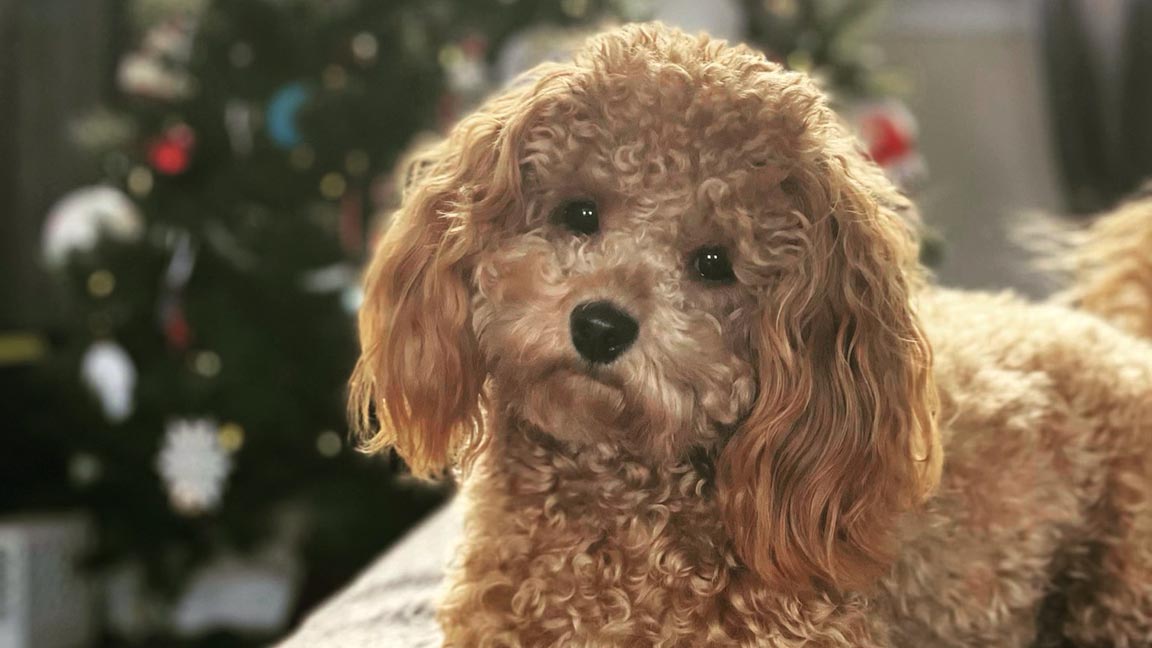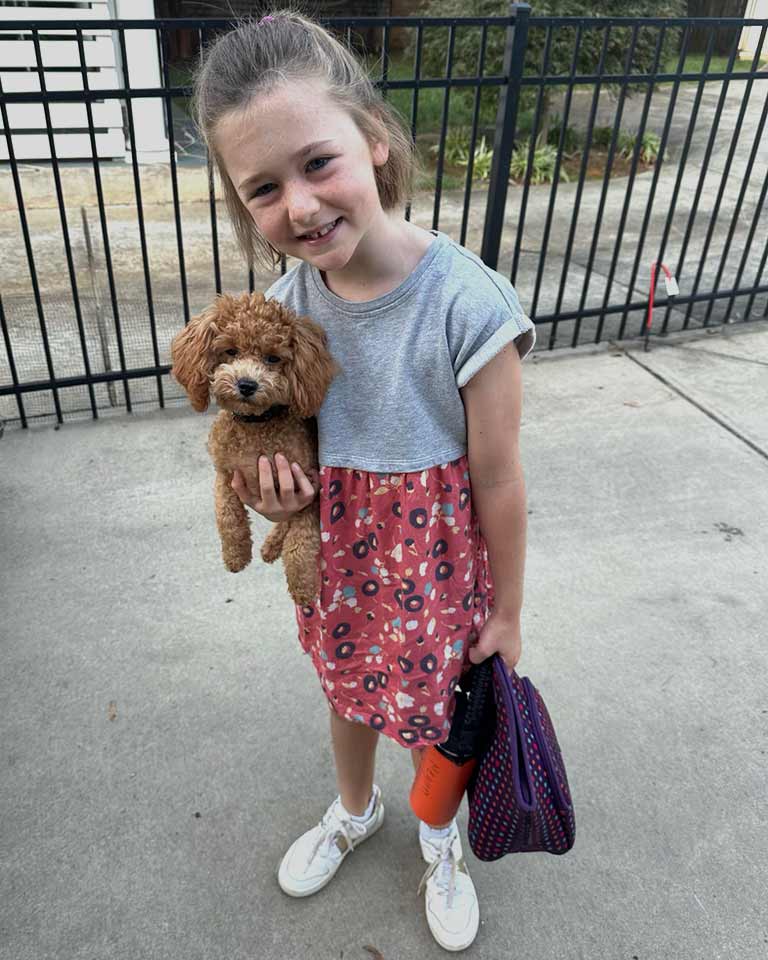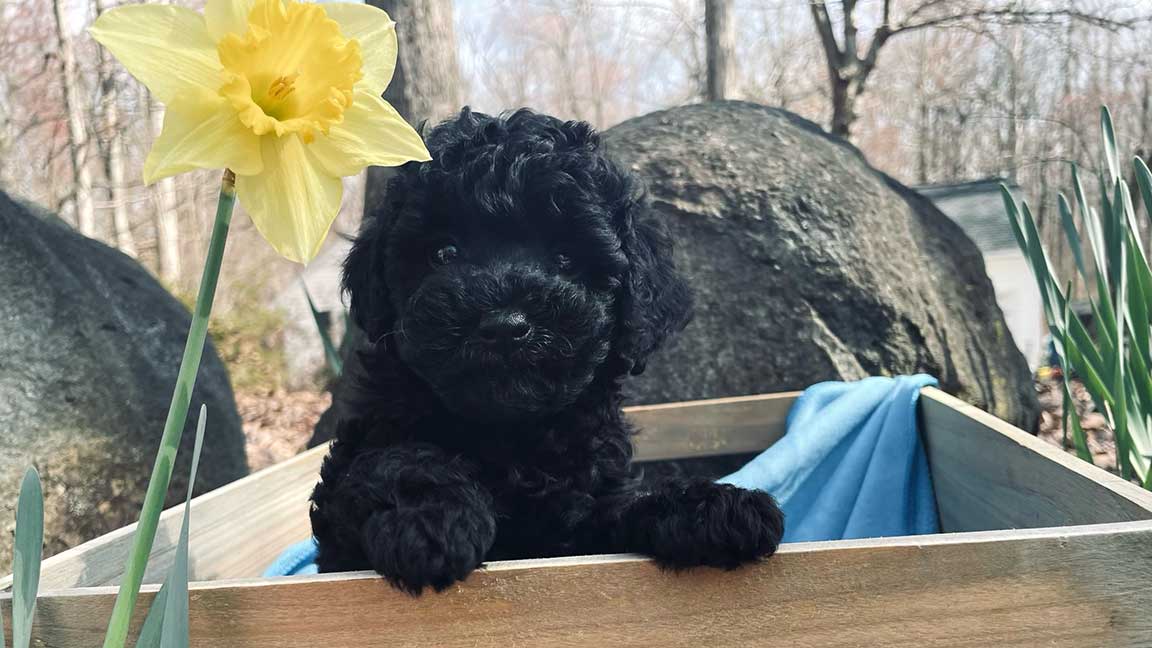
Cavapoo Health Issues: What to Watch Out For
As a proud breeder of Cavapoos here at Jones Farm Puppies, one of my primary responsibilities—and one of my greatest joys—is ensuring that each puppy I raise is as healthy and happy as can be. Cavapoos, like any other breed, come with unique health considerations, and understanding these issues can help you provide the best care for your furry friend. In this post, I’ll cover the common Cavapoo health issues, what to watch for, and how to keep your beloved pup in tip-top shape.
Why Understanding Cavapoo Health is Essential
Cavapoos are a crossbreed between the Cavalier King Charles Spaniel and the Poodle, both breeds known for their affectionate nature and intelligence. Ethical breeders should have health testings on both parents dogs, but like all breeds, Cavapoos have certain predispositions to health issues. Staying informed and proactive about possible Cavapoo health issues can make a world of difference in their quality of life.
Common Cavapoo Health Issues
Hip Dysplasia
Hip dysplasia is a common genetic condition in many dog breeds, including Cavapoos. It occurs when the hip joint doesn’t form properly, leading to arthritis and discomfort over time.
- Signs to Watch For: Limping, decreased activity, difficulty standing up, or an unusual gait.
- Preventive Care: Maintaining a healthy weight is crucial to reducing stress on your Cavapoo’s joints. Regular exercise, but not too strenuous, is also beneficial. Dog supplements can also support joint health—consult your vet for the best options.
Mitral Valve Disease (MVD)
Mitral Valve Disease (MVD) is especially common in Cavalier King Charles Spaniels, and Cavapoos can inherit a predisposition for this heart condition. MVD affects the heart’s ability to pump blood effectively, leading to a gradual decline in heart function.
- Signs to Watch For: Persistent cough, reduced activity, difficulty breathing, or fainting spells.
- Preventive Care: Regular vet check-ups are essential. Detecting MVD early can help manage it effectively, often with medications. Keeping your Cavapoo at a healthy weight and engaging in light to moderate exercise also supports heart health.
Patellar Luxation
Patellar luxation, or “slipped knee,” is another joint issue that can affect Cavapoos. It occurs when the kneecap moves out of its normal position, which can cause pain and difficulty moving.
- Signs to Watch For: Limping, occasional skipping in their step, or difficulty running and jumping.
- Preventive Care: Just as with hip dysplasia, maintaining a healthy weight and providing low-impact exercise can help manage the risk of patellar luxation. In more severe cases, surgery may be needed to correct the issue.
Eye Problems
 Both Poodles and Cavalier King Charles Spaniels are prone to certain eye issues, making monitoring your Cavapoo’s eye health important. Conditions like progressive retinal atrophy (PRA) and cataracts can impact their vision.
Both Poodles and Cavalier King Charles Spaniels are prone to certain eye issues, making monitoring your Cavapoo’s eye health important. Conditions like progressive retinal atrophy (PRA) and cataracts can impact their vision.
- Signs to Watch For: Cloudy eyes, redness, excessive tearing, or vision changes.
- Preventive Care: Regular eye check-ups with your vet can help catch eye issues early. If your Cavapoo’s eyes develop tear stains, clean them gently, but always be cautious to avoid irritation. Supplements designed to support eye health in dogs are also available.
Ear Infections
With their cute floppy ears, Cavapoos are susceptible to ear infections. Moisture can become trapped inside their ears, creating an ideal environment for growing bacteria and yeast.
- Signs to Watch For: Scratching at the ears, shaking of the head, unpleasant odor, or redness inside the ear.
- Preventive Care: Regularly check and clean your Cavapoo’s ears with a vet-approved cleaner. After bathing or swimming, ensure their ears are dried thoroughly to prevent moisture buildup.
Skin Allergies
Skin allergies are relatively common in Cavapoos, often inherited from the Poodle side. Various factors, including food, pollen, dust, and flea bites, can cause these allergies.
- Signs to Watch For: Excessive scratching, licking, or chewing at paws, red patches, or hair loss.
- Preventive Care: A high-quality diet can make a big difference in managing allergies. Many Cavapoo owners find that grain-free or hypoallergenic dog foods can help reduce skin irritations. Your vet might also recommend topical treatments or antihistamines if necessary.
 Epilepsy
Epilepsy
Epilepsy is a neurological condition that causes seizures and can sometimes be found in Cavapoos. While it can be alarming to witness a seizure, many dogs with epilepsy lead normal, happy lives with proper management.
- Signs to Watch For: Seizures can vary but might include sudden collapse, jerking movements, drooling, or loss of consciousness.
- Preventive Care: If your Cavapoo has epilepsy, your vet may prescribe medication to help control the seizures. Monitoring your dog closely and avoiding stressors can also help manage the condition.
Hypothyroidism
Hypothyroidism, a condition where the thyroid gland doesn’t produce enough hormones, can become one of the Cavapoo health issues, usually in middle age. It can impact their energy levels, weight, and coat health.
- Signs to Watch For: Lethargy, weight gain, hair loss, or a dry, dull coat.
- Preventive Care: Once diagnosed, this condition is easily managed with medication. A balanced diet and regular exercise can also support your Cavapoo’s overall health and metabolism.
Dental Issues
Unfortunately, dental problems, including gum disease and tooth decay, are common in smaller breeds, and Cavapoos are no exception. Good dental care is essential to keep them comfortable and healthy.
- Signs to Watch For: Bad breath, reluctance to eat, drooling, or red, swollen gums.
- Preventive Care: Brushing your Cavapoo’s teeth regularly (or using dental wipes) can help prevent plaque buildup. Dental treats and toys are also helpful. Be sure to schedule professional cleanings as recommended by your vet.
Obesity
Due to their smaller size and affectionate nature, spoiling a Cavapoo with treats is easy. However, obesity can exacerbate other Cavapoo health issues like hip dysplasia, heart disease, and diabetes.
- Signs to Watch For: Difficulty moving, lethargy, or noticeable weight gain.
- Preventive Care: Maintaining a balanced diet and providing regular, moderate exercise are key. Keep treats to a minimum and choose low-calorie options if possible.
Tips for Maintaining a Healthy Cavapoo
 While it may feel overwhelming to consider all these potential Cavapoo health issues, remember that proactive care can go a long way. Here are some tips to ensure your Cavapoo stays as healthy as possible:
While it may feel overwhelming to consider all these potential Cavapoo health issues, remember that proactive care can go a long way. Here are some tips to ensure your Cavapoo stays as healthy as possible:
- Schedule Regular Vet Check-Ups: Routine visits to the vet help catch health issues early and keep vaccinations and other preventive measures up to date.
- Keep an Eye on Diet: High-quality, balanced food is one of the best ways to support your Cavapoo’s overall health. Discuss any special dietary needs with your vet.
- Exercise Regularly: Cavapoos are active and enjoy playtime. Aim for daily walks, interactive toys, or even agility training to keep them mentally and physically fit.
- Monitor Grooming Needs: Regular grooming helps maintain their coat health and allows them to check for skin or ear issues.
- Socialize and Train: A happy, well-socialized Cavapoo is less likely to experience stress-related health issues. Positive reinforcement training strengthens the bond between you and your pup and helps them feel secure and well-adjusted.
When to Visit the Vet
Pet owners naturally worry about when to consult the vet, especially with such a lovable breed. Generally, if you notice any sudden changes in behavior, appetite, or activity level, it’s worth calling your vet. Cavapoos may be small, but their big personalities make them expressive—and they’ll often let you know if something doesn’t feel right.
Conclusion: Cavapoo Health Issues
Owning a Cavapoo is a gratifying experience full of joy, affection, and companionship. By staying informed about common Cavapoo health issues, you can give your furry friend the best possible care. Whether through regular vet visits, a healthy diet or keeping an eye out for specific symptoms, each step you take is a testament to your love and commitment.
Remember, our team at Jones Farm Puppies is here because we care about the health and well-being of every Cavapoo that finds a home with you. With proactive care, your Cavapoo will be by your side, sharing joy and love for many happy years.

FAQ
Are Cavapoos generally healthy dogs?
Yes, Cavapoos are generally healthy and robust dogs. However, like any breed, they have specific health concerns due to their genetic background. By staying proactive with their health care and understanding common Cavapoo health issues, you can help ensure your Cavapoo leads a long, happy life.
How can I prevent my Cavapoo from developing hip dysplasia?
While hip dysplasia can be genetic, you can reduce the risk by keeping your Cavapoo at a healthy weight and avoiding high-impact activities, especially when they are young. Joint supplements and regular low-impact exercise, like swimming or walking, can also support joint health.
Do all Cavapoos develop Mitral Valve Disease (MVD)?
Not all Cavapoos will develop MVD, but it is more common due to their Cavalier King Charles Spaniel heritage. Routine vet check-ups are essential for monitoring heart health, especially as they age. Early detection can help manage the condition effectively.
How often should I clean my Cavapoo’s ears to prevent infections?
To prevent moisture buildup, it’s best to clean your Cavapoo’s ears weekly, especially if they have been swimming or bathing. Use a vet-approved ear cleaner, and always dry their ears thoroughly after exposure to water.
What is the best diet to prevent skin allergies in Cavapoos?
A high-quality, hypoallergenic diet can benefit Cavapoos prone to allergies. Many owners find that grain-free or limited-ingredient diets help reduce skin irritations. Always consult your vet to choose the best diet for your dog’s specific needs.
How can I keep my Cavapoo’s teeth healthy?
Dental health is crucial for Cavapoos. Regular brushing (ideally a few times a week), dental chews, and professional cleanings, as your vet recommends, can help prevent dental disease. Dental toys that promote chewing are also a good option.
How much exercise does a Cavapoo need to stay healthy?
Cavapoos benefit from 30–60 minutes of exercise daily, including walks and playtime. This activity level keeps them mentally stimulated and physically fit, reducing the risk of obesity and related Cavapoo health issues.
Can I give my Cavapoo supplements to help with their joint health?
Yes, many joint supplements can benefit Cavapoos, especially those prone to joint issues like hip dysplasia and patellar luxation. Glucosamine and chondroitin are popular supplements for dogs, but always consult your vet before adding any supplement to their diet.

 Epilepsy
Epilepsy



